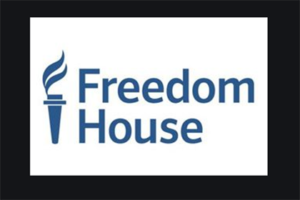Pandemic sees a crackdown on freedoms
Restrictions on freedom of expression around the world are ramping up as more regimes use the COVID-19 crisis to crack down on criticism, according to the democratic think tank Freedom House.
Freedom House researchers say that democracies and repressive governments alike are increasing restrictions on freedoms.
 They point to South Africa passing regulations that criminalise content intended to deceive a person about the pandemic, or the government’s response to it.
They point to South Africa passing regulations that criminalise content intended to deceive a person about the pandemic, or the government’s response to it.
Hungary has changed its criminal code to include harsh penalties for spreading ‘false information’ and has passed a state-of-emergency law that gives the government indefinite powers to rule by decree.
Thailand also announced emergency powers that include broad criminal prohibitions on COVID-19 information deemed false, which might “instigate fear,” or is “intentionally distorted to mislead the public”, Freedom House says.
Meanwhile, officials in Egypt revoked the credentials of a Guardian journalist who reported on estimates of the virus’s spread in the country that were at odds with government statistics, and denounced a New York Times reporter for tweeting the same information.
Turkish authorities have detained at least 410 for “provocative” posts about the pandemic.
In Venezuela, the Special Action Forces of the national police temporarily detained and interrogated a freelance journalist and members of his family. Authorities demanded information about the journalist’s sources for his COVID-19 coverage
“The Covid-19 pandemic presents a grave threat to public health, but emergency measures adopted to combat the dangers can also have discriminatory impacts and harmful effects, and can be extended and repurposed after a crisis has passed,” Freedom House said.
The groups called on governments to protect civil and political rights during and after the pandemic by following a set of principles the think tank released.
They include:
- Any emergency restrictions should be clearly communicated, enacted in a transparent manner, well grounded in law, necessary to serve a legitimate purpose, and proportionate to the threat.
- Emergency restrictions affecting basic rights, including freedoms of assembly, association, or internal movement, should be limited in duration, subject to independent oversight, and imposed and extended based only on transparent criteria. Individuals should have the opportunity to seek remedies and compensation for any unnecessary or disproportionate rights violations committed during the crisis.
- New or expanded surveillance programs that use emerging technologies or collect individuals’ personal information, including that obtained from private companies, must be administered in an open and transparent manner, scientifically necessary to limit the spread of disease, limited in duration, subject to independent oversight, and “firewalled” from other commercial and governmental uses such as law enforcement and enforcement of immigration policies.
- A free press is especially vital during times of emergency. There should be no state censorship or other undue restrictions on the free flow of information. All efforts must be made to provide and maintain access to the internet and other communication platforms. Criminal penalties for distributing false information are disproportionate and prone to arbitrary application and abuse. Instead, governments should counter any falsehoods by delivering clear, accurate, and up-to-date information.
Every feasible step should be taken to protect the administration of free and fair elections, including by adjusting voter-registration rules and polling-station procedures, encouraging early voting, and allowing vote-by-mail or other remote voting procedures where their integrity can be assured. Postponement of elections should only be a last resort, and should be supported by law and a broad consensus among political forces and independent experts.












